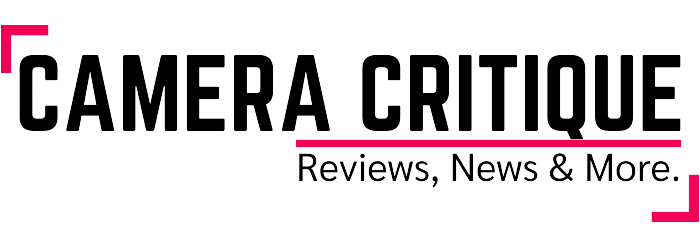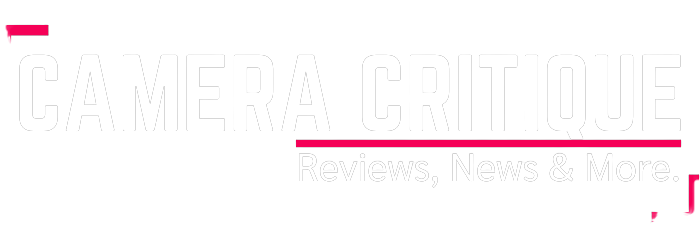In today’s article, we are going to see which camera is best for vlogging that is give you professional-looking videos and vlogs.
It’s now easier than ever to start vlogging. Anyone with a smartphone can start recording and sharing content with the world. That said, a good camera is necessary to take your vlogs to the next level. With so many different options to choose from, however, choosing the right camera can seem overwhelming. Whether it’s a full-featured mirrorless or DSLR camera for sit-down vlogging, an action camera to capture and share your extreme sports adventures, or a compact point-and-shoot to easily take on the go.
So without further ado, let’s start looking at the awesome vlogging cameras.
Best Budget Camera for Vlogging India
- Sony ZV-1
- Fujifilm X-S10
- GoPro Hero10 Black
- Sony A6400
- Canon EOS M50 Mark II
- DJI Pocket 2
- Insta360 One X2
1. Sony ZV-1
For a long time, the Canon G7 X Mark III was our favorite compact vlogging camera, but it’s just been knocked off its perch by the excellent Sony ZV-1. By combining all of the best bits of Sony’s RX100 series (for example, the RX100 VII’s microphone port and autofocus, plus the RX100 V’s bright 24-70mm f/1.8-2.8 lens) the ZV-1 really nails what most people want from a small vlogging camera.
Sony’s latest Real-time tracking and Eye AF are the best around and the ZV-1 also has a huge amount of depth for a compact camera, including a built-in ND filter and profiles like S-Log2 for those who want to embrace color grading. We still think the Olympus OM-D E-M5 Mark III’s stabilization and image quality are better still, but you won’t find a finer pocket vlogging camera than the Sony ZV-1.
| Type | Compact |
| Sensor size | 1-inch |
| Resolution | 20.1MP |
| Effective focal length | 24-70mm |
| Viewfinder | None |
| Monitor | 3.0-inch vari-angle touchscreen, 0.921-million dots |
| Connectivity | Wi-Fi, Bluetooth |
| Max movie resolution | 4K 30p |
| Size, weight | 105.5 x 60.0 x 43.5 mm, 294g |
| TODAY’S DEAL | Checkout Now |
2. Fujifilm X-S10
The Fujifilm X-S10 is such a great camera in our eyes it even when someone asks me Which Camera is Best for Vlogging then I have recommended this camera. It might not have the same external exposure controls as the higher-level X-series cameras but it’s certainly no entry-level bit of kit. While the swap to a more conventional mode dial might upset die-hard Fujifilm fans, the in-body stabilization, build quality and handling certainly make up for it.
The combination of its flip-out screen, 4K video capabilities and IBIS make this camera ideal for vlogging. It also takes great photos too so even if you want to use it for other types of content creation you can. Considering the features it offers, the size, quality and handling, this is pretty much the best APS-C camera you can get at this price point.
We have also created the list of best mics vlogging Checkout Now.
| Type | Mirrorless |
| Sensor size | APS-C |
| Resolution | 26.1MP |
| Effective focal length | N/A |
| Viewfinder | EVF, 2.36 million dots |
| Monitor | 3.0-inch vari-angle touchscreen, 1.04 million dots |
| Connectivity | Wi-Fi, Bluetooth |
| Max movie resolution | 4K 30p |
| Size, weight | 126 x 85 x 65 mm, 465g |
| TODAY’S DEAL | Checkout Now |
3. GoPro Hero10 Black
Welcome to the newest and best GoPro around. Though launched without much fanfare and looking identical to the Hero9 Black in almost every way, the Hero10 Black is nevertheless a significant upgrade. That’s all down to its use of the all-new GP2 processor, which powers both a speedy user interface, doubles the frame rates and fuels the best image stabilization tech yet. The larger, 2.27-inch display and the handy front-facing screen is what makes this camera perfect for vlogging – especially if you like to blog on the move, up a mountain or even when riding a bike!
The highlight is its 5.3K 60p video capabilities and GoPro’s new HyperSmooth, 4.0 video stabilization. It works in all modes and alongside its 23MP camera, it produced the best photos and has the best low-light performance of any GoPro. Content can be transferred super fast via a cable and it has an auto-upload feature that automatically adds photos and video to the cloud while it recharges. Some upgrades aren’t all that exciting but the Hero10 Black was definitely worth the wait.
The GoPro Hero 10 Black considers the best camera for motovlogging or every action vlogging.
| Weight | 158g |
| Waterproof | 10m |
| 5K video | up to 60fps |
| 4K video | up to 120fps |
| 1080 | up to 240fps |
| 720 | up to 240fps |
| Stills resolution | 23MP |
| Battery life | 1-3hrs estimate |
| TODAY’S DEAL | Ckeckout Now |
4. Sony A6400
Not so long ago, any camera with a 180-degree front-facing screen was instantly dismissed as a ‘selfie’ camera, but the rise of blogging, vlogging and Instagram has brought video to the fore, and the A6400’s front-facing screen is ideal for single-handed video shooters who want to talk directly to the camera – though a fully vari-angle screen like some of its rivals have would be better still.
The A6400 is also a great camera for stills. We’re not so keen on the design, which is largely unchanged since the original A6000 model, but it’s not a deal-breaker given that the Sony is so good at video. It’s not just the 4K video that makes this camera stand out as a vlogging tool, but when my friend asks me, which camera is best for vlogging under 1 lakh then I have suggested this one because of it’s autofocus system and Eye-AF performance.
| Type | Mirrorless |
| Sensor | APS-C |
| Megapixels | 24.2MP |
| Lens mount | Sony E |
| Screen | 3-inch tilting touchscreen, 921,000 dots |
| Viewfinder | Electronic |
| Continuous shooting speed | 11fps |
| Max video resolution | 4K |
| TODAY’S DEAL | Checkout Now |
5. Canon EOS M50 Mark II
It’s a shame Canon didn’t make the EOS M50 Mark II a bigger update to its EOS M50 predecessor, but it remains a good 1080p video option for anyone who’s starting out on their vlogging journey. The main updates it brings are Eye AF for stills and video, which works well for an entry-level model, and the option of shooting vertical video for the likes of Instagram.
The main drawback of the EOS M50 Mark II is its heavy 1.56x crop on 4K video, which it inherits from its predecessor. This crop increases to a massive 1.75x if you turn on digital image stabilization – so if shooting 4K video is your main priority, we’d recommend going for the Canon EOS M6 Mark II instead (see further down). But if you’re happy with shooting 1080p video, then the M50 Mark II remains a fine option, thanks to its combination of a large 24.1MP APS-C CMOS sensor, vari-angle touchscreen, microphone input and that compact form factor.
| Type | Mirrorless |
| Sensor size | APS-C CMOS |
| Resolution | 24.1MP |
| Effective focal length | N/A |
| Viewfinder | EVF, 2.36 million dots |
| Monitor | 3.0-inch vari-angle touchscreen, 1.04 million dots |
| Connectivity | Wi-Fi, NFC and Bluetooth |
| Max movie resolution | 4K |
| Size, weight | 116 x 88 x 59mm, 390g |
| TODAY’S DEAL | Checkout Now |
6. DJI Pocket 2
We were big fans of the original DJI Osmo Pocket, but this sequel fixes a lot of its limitations and makes it the best compact option around for solo filmmakers. The Sony ZV-1 (above) trumps it for outright video quality, but if you tend to shoot a lot of walk-and-talk style clips to camera, then the Pocket 2’s combination of a three-axis gimbal and solid face-tracking could make it more.
Compared to the Osmo Pocket (which remains on sale as a more affordable alternative), the DJI Pocket 2 brings a new larger sensor, a brighter lens, improved microphones and wider field of view, which means you don’t have to hold it out at arm’s length when talking to camera.
Plonk it down on a tripod base or surface, and it’ll turn to keep you in shot as you walk around in front of it. Despite that larger sensor, the Pocket 2 still isn’t the ideal camera for low light situations or high contrast scenes, but it’s a very nice upgrade on using your phone in a gimbal and the improved four-mic audio setup means you get some very decent sound quality to match.
I think the DJI Pocket 2 camera clears the question “Which Camera is Best for Vlogging” for Solo filmmakers or vloggers.
| Type | Compact |
| Sensor size | 1/1.7-in |
| Resolution | 64MP |
| Effective focal length | 20mm |
| Viewfinder | None |
| Connectivity | Wi-Fi |
| Max movie resolution | 4K 60p |
| Size, weight | 124.7 x 38.1 x 30.0 mm, 117g |
| TODAY’S DEAL | Checkout Now |
7. Insta360 One X2
360 cameras are really quite mind-bending to use, not least because it doesn’t matter where you point them! But to show off your video you either need a VR playback device, such as a smartphone or YouTube’s 360 mode. The alternative is to edit your spherical footage into a regular ‘flat’ video where you can choose where to point the camera AFTER you’ve captured the video – but that requires some editing effort.
The One X2 is a seriously impressive action camera that uses its 360º lenses not only for virtual reality, but for a plethora of creative editing modes for widescreen videos, the One X2 consistently produces exquisite videos and photos. It takes time and patience to master, and its processing-intensive app demands the latest phones, but for filmmakers wanting to try something different the One X2 cannot be ignored.
| Weight | 149g |
| Dimensions | 462x113x29.8mm |
| Waterproof | 10m |
| Stills resolution | 18.5MP |
| Video resolution | 5.7K |
| Memory | MicroSD |
| Mount | Tripod socket |
| Battery life | 80 minutes |
| TODAY’S DEAL | Checkout Now |
Some FAQ’s about Which Camera is Best for Vlogging under 1 lakh
1. What is a good first vlog camera?
Acording to me the good first is alway your phone camera but you want to proper camera then you can go with any GoPro cameras.
2. Which camera is best for Youtube vlogging?
The best camera for youtube vlogging is:
3. Can I use my phone for vlogging?
If you are a beginner, you can start creating video vlog but after that should buy a good camera if you want to run awesomely.
4. Is DSLR good for vlogging?
Yes ofcourse, even the most common choice for YouTube vlogging is an APS-C DSLR.









